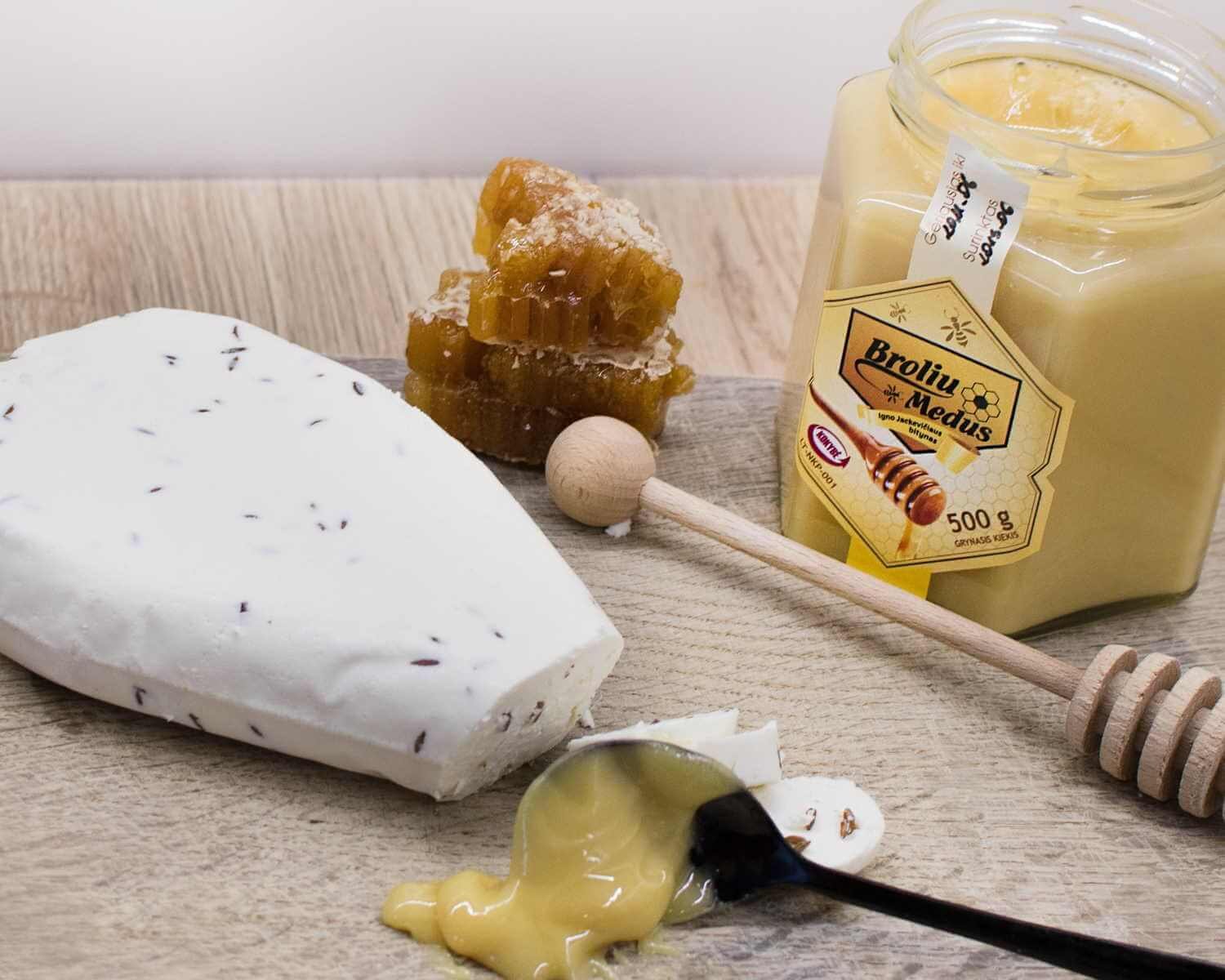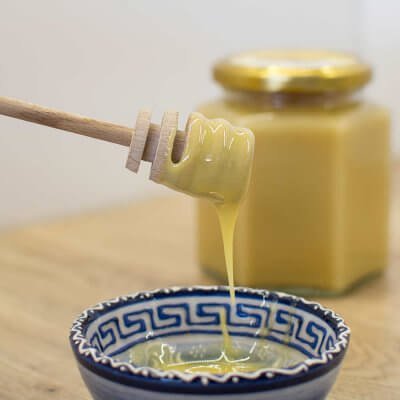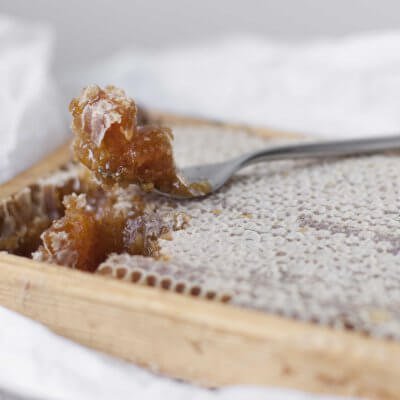Blog’as
What is honey made of? Honey calories and what lies beneath them.

Honey is actually a food. Even though all we sense as we taste honey is an indescribable sweetness with a light botanical after-taste – honey is full of the most various substances. And if you’re a big calorie counter, it’s definitely worth your time reading on because we’ll be discussing the nutritional value of honey as well as how it can facilitate weight loss.
Calories
Honey is almost pure energy. 100 g of honey is composed of about 80% carbohydrates that amount to about 350 kcal. That’s slightly less than sugar. The remaining 20% is water, so we get the majority of our calories from the simple carbohydrates in honey, which are much better and more rapidly absorbed than sugar. Almost half of the sweetness of honey comes from fructose and a further third comes from glucose. It also contains maltose and sucrose. So, almost all of the calories in honey come from carbohydrates, but this macronutrient is not all that honey has to offer by way of nutritional value.
Protein
There is very little protein in honey – just 0.2 g per 100 g of honey. However, the proteins in honey act more like vitamins than building blocks (necessary for growing muscle mass). A large share of the protein in honey consists of enzymes and amino acids. Honey enzymes fight free radicals and prevent damage to cellular mechanisms. One of the main amino acids, proline, acts as a potent antioxidant that contributes to cellular regeneration, tissue rebuilding processes and the synthesis of collagen. Apart from proline, honey also contains 17 other essential amino acids.
Salt, vitamins and minerals
However strange it may sound, there is actually salt in honey! Of course, there is only very little of it, with just 4 mg of sodium. Honey also contains several milligrams of calcium, fluorine, magnesium, phosphorus, less than a milligram of copper, iron, manganese, selenium, zinc and as many as 52 mg of potassium. Apart from minerals, honey is also rich in vitamins. It contains approximately 2 mg choline, half a milligram of vitamin C, a little niacin, riboflavin, pantothenic acid, vitamin B6 and others.
How to lose weight. Can honey help?
Yes and no. Even though honey is calorie-rich, the calories in honey are different. Honey is much more nutritionally valuable than any other sweetener or sugar because of the previously mentioned components. So, by consuming honey, we don’t simply get empty calories, but a whole package of essential nutrients that, as increasingly more scientific sources claim, can actually contribute to weight loss if consumed in moderation.
A teaspoon of honey may be more calorific than a teaspoon of sugar, but that teaspoon of honey is a lot sweeter, which is why we consume less of it. Less honey means fewer calories. Besides, honey, like other bee products contains ingredients that speed up the metabolism. This does not, of course, mean that your metabolism will be spinning at a crazy rate, but it will eventually get you into the cycle of burning energy as opposed to accumulating it.
If you’re counting your calories and watching what you eat, honey can become a great alternative to sugar. Just don’t forget that honey, like sugar, should be consumed in moderation.
The composition of honey is very simple and very complex at the same time. However hard scientists try to synthesise honey-like products in the lab with the same nourishing properties, we still prefer organic honey, while its ‘clones’ gather dust on laboratory shelves. So where does the secret to the composition of honey lie?
Sugar but not sugar
Honey is almost a pure carbohydrate. About 80% of it is composed of carbohydrates, while the remaining 20% are composed of water, enzymes, vitamins, minerals and other magical components. Honey is as sweet as it is because the majority of its sugars (~40%) are fructose, which the body begins to absorb while it is still in the mouth. A further third of these sugars is composed of glucose and maltose, while the rest is made up of other carbohydrates. The main difference between the sweetness of honey and sugar lies in the fact that honey has a lower glycemic index, which means that blood sugar levels won’t be taken on a roller coaster ride like when consuming sugar. By the way, neither our brains, nor our hearts and pancreases like these roller coasters. So if you’re struggling to remove sugar from your regimen, try replacing it with honey.
The composition of honey becomes special the moment the nectar a bee collects is processed in its proboscis. Inside the proboscis it is mixed with bee saliva and the nutrients and enzymes they secrete. It seems that this is exactly the honey production technology that remains inimitable and prevents scientists from recreating it in the lab. So, what do bees enhance that honey with?
Vitamins. Honey contains mostly B group vitamins as well as one of the major antioxidants – vitamin C.
Acids. Even though honey is sweet, it contains a fair amount of acids. Mostly malic and citric acids.
Minerals. This is probably the largest nutrient group in honey. It is rich in calcium, sodium, potassium, chlorine, iron, magnesium, copper, phosphorus and other microelements.
Proteins. The majority of proteins in honey come in the form of amino acids. Honey contains almost all of the essential and non-essential amino acids.
The composition of honey is always unique. There are no two jars of honey in the world that are identical. While the main component of honey – carbohydrates – hardly changes, the remaining range of nutrients in honey depends on the time of the honey harvest and the nectar of flowering plants. Bee-keepers say that for a more mineral-, antioxidant- and protein-rich honey, you should opt for a darker kind, for example buckwheat honey. And the title of most valuable honey in the world has been given to Manuka honey (a tea tree honey from New Zealand).
Sources:






